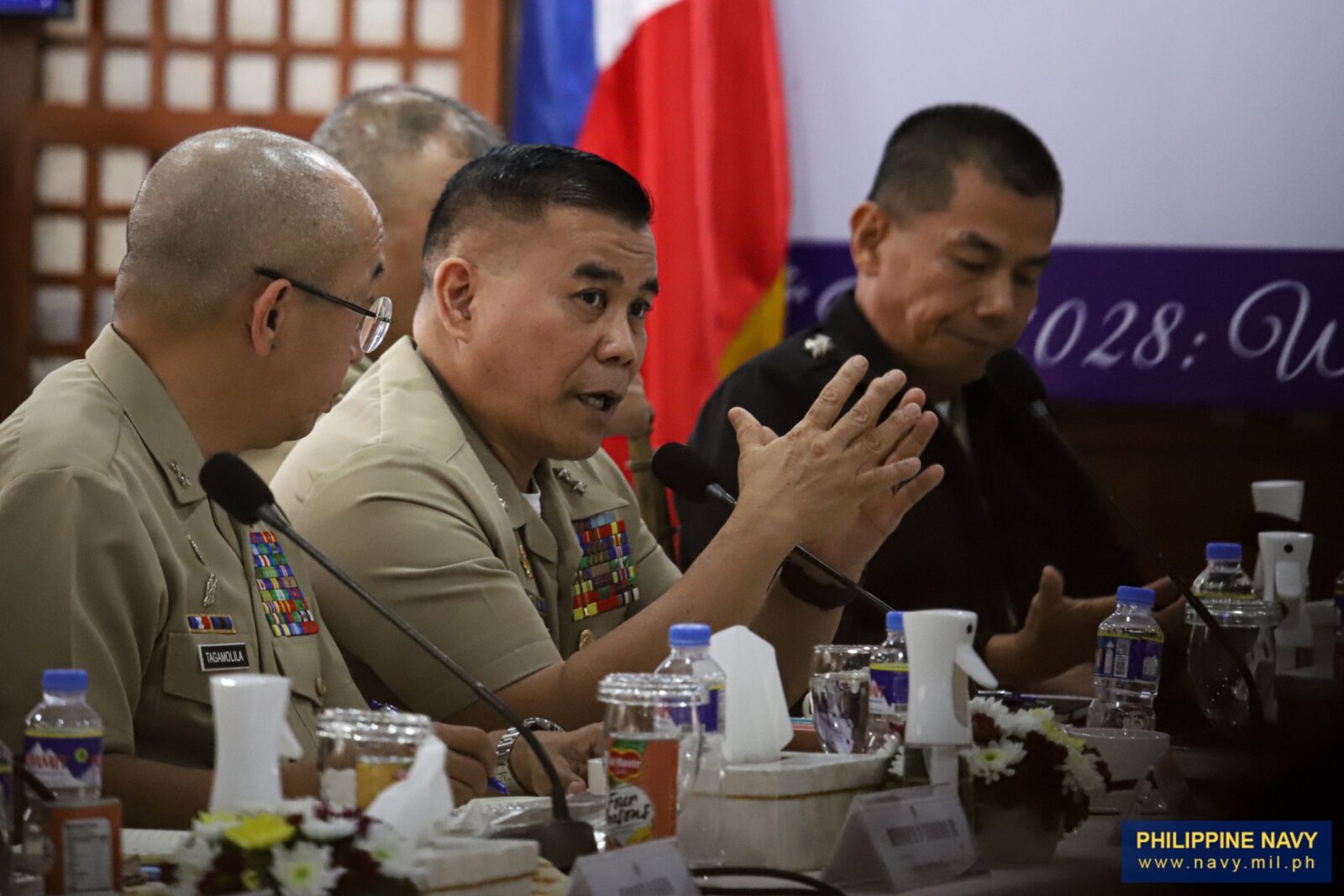AFP vows to continue 24/7 patrols off Bajo de Masinloc

The Armed Forces of the Philippines will continue its round-the-clock monitoring and sustained patrols at Bajo de Masinloc (Scarborough Shoal) following China’s announcement that it was opening a “national nature reserve” in the area.
“There will be no letup in the conduct of maritime patrols and air surveillance flights if only to ensure that Bajo de Masinloc will remain ours,” Navy spokesperson for the West Philippine Sea Rear Adm. Roy Vincent Trinidad told reporters at Camp Aguinaldo on Tuesday.
Trinidad called China’s announcement a “false claim” meant to justify its continued presence inside the Philippines’ exclusive economic zone (EEZ), but noted that no new construction or reclamation has been observed in the shoal.
The Department of Foreign Affairs earlier rejected Beijing’s move, while the US expressed support for Manila and urged China to respect the 2016 arbitral tribunal ruling that invalidated its sweeping South China Sea claims.
Bajo de Masinloc, about 229 kilometers (124 nautical miles) off Zambales, is a traditional fishing ground and lies within the country’s 370-kilometer (200-nautical-mile) EEZ under the United Nations Convention on the Law of the Sea.
In response, Chinese Foreign Ministry spokesperson Lin Jian said on Monday that Beijing had lodged a “serious protest” against Washington, insisting that Huangyan Dao, its name for Scarborough, “has always been China’s territory.”
Warning vs US
“It is China’s sovereign right to create a national nature reserve for the island, which is legitimate, lawful, and beyond reproach,” Lin said, calling the 2016 arbitration ruling “illegal, null and void.”
He accused the United States of “sowing discord and fear” and urged it to “keep its hands off the South China Sea.”
China’s State Council last week announced plans to establish the reserve at Scarborough Shoal, saying it is “an important measure for maintaining the diversity, stability and sustainability of the natural ecosystem of Huangyan Island.”
Trinidad also responded to Beijing’s criticism of recent joint maritime exercises with the United States and Japan in the West Philippine Sea, which Chinese officials described as stoking tension and disrupting the region’s “tranquility.”
“These activities are aimed at ensuring that we have a collective, cooperative and collaborative effort in maintaining a free and open Indo-Pacific,” Trinidad said. “The Philippines acts as a proxy of international law and the rules-based international order—not of any single foreign power.”
He stressed that the AFP’s engagements with allies and partners are conducted transparently and in accordance with the country’s national interest.
China’s messaging
Trinidad said it was important to understand Beijing’s public statements in the context of its domestic political environment.
“We have to be able to digest if this is for the international audience or for the internal audience. Many times they need to appease the internal audience, hence their messaging will be addressed to the internal audience,” he added.
“So we have to be very clear what we accept as directed at us, at the international community, or for the internal audience,” he said.
Beijing’s statements, according to Trinidad, also often aim to project total control over the disputed waters.

















